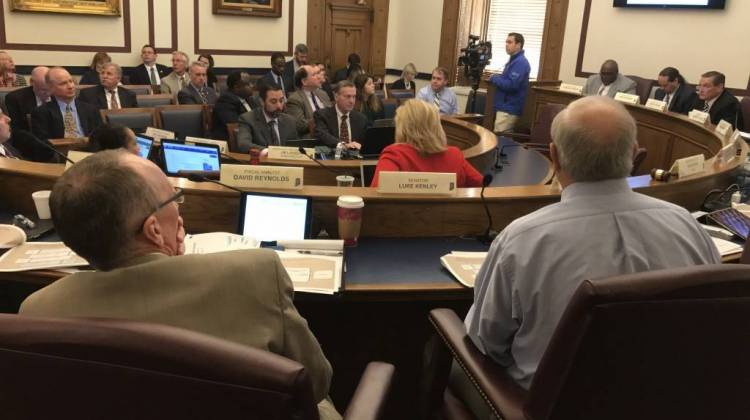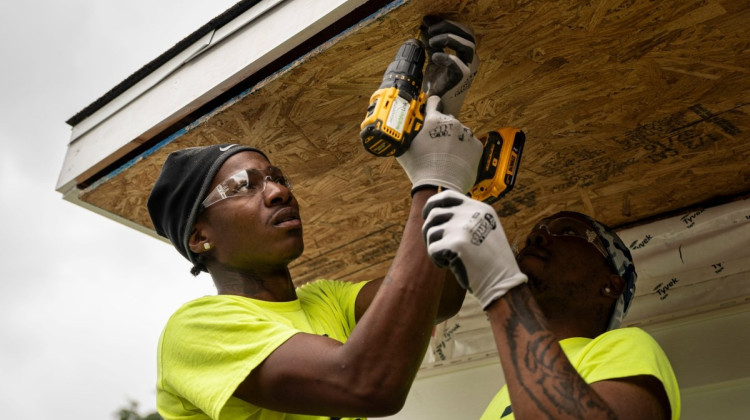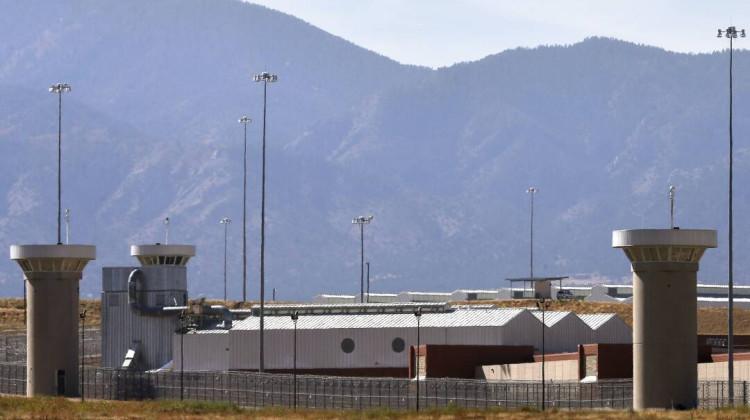
Members of the State Budget Committee listen as fiscal analysts present the new state revenue forecast.
Brandon Smith/IPBIndiana’s new revenue forecast is slightly more optimistic about the state’s fiscal picture for the next two years. But House and Senate fiscal leaders say it doesn’t change their budget plans.
The April forecast gives Indiana budget writers an agreed-upon total revenue number as they finalize the state’s two-year spending plan. This year, that conversation is tangled up with the road funding debate.
The forecast delivered to the State Budget Committee projects about $200 million more than the forecast from December.
Senate budget author Luke Kenley (R-Noblesville) says that number doesn’t change things for him.
“There’s certainly not enough revenue gain to justify moving the sales tax on gas over to road funding and creating a big hole in the budget,” Kenley says.
The House proposed moving that gasoline sales tax to pay for roads. The Senate eliminated that shift in its plan.
House budget author Tim Brown (R-Crawfordsville) doesn’t think the forecast changes the road funding debate either.
“Do you feel like when you fill up your tank and pay for gas, should all the tax that you spend on that product be dedicated to roads? That’s philosophical,” Brown says.
The budget and road funding bill will be finalized in the next two weeks.
 DONATE
DONATE








 Support WFYI. We can't do it without you.
Support WFYI. We can't do it without you.